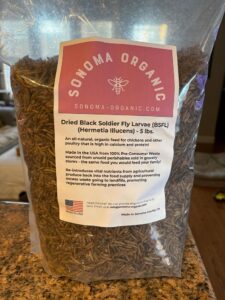Imagine this: your bearded dragon stares you, waiting for dinner, aware of something wonderful just about to drop. That is your cue—open a dish of Black soldier fly larvae. Some view simply a squirmy nibble, but let us remove that layer.

First, let us start with proteins. Loading up to 40-45% protein per dry weight, these larvae pack a punch. Against the typical suspects—crickets or mealworms—BSFL (as the hip kids shorten it) leaps immediately to the top. Strong bones, clear skin, and lustrous scales follow from this. Not only is it about quantity; the grade of amino acids surpasses any insect snack bar available.
Still another strong hitter is calcium. Reptiles suffering with weak bones and flimsy shells? Eggs without structure? Black soldier fly larvae have a nearly ideal calcium-to—phosphorus ratio. Translation: There is no longer constant calcium powder dusting. Just drop in the larvae; each time you are filling that dietary box. For owner as well as for reptiles, that is a relief.
Ever tried offering your finicky gecko a cricket, only for it to stare at you like leftovers from last week? For BSFL, many reptiles go wild. They are irresistible because of their wriggliness. Even finicky eaters usually jump right in. Less waste, more joyful eating—a victory everywhere. Continue reading!
If your reptiles tend to be dehydrated, these larvae are primarily water (around 60% moisture content when alive). Bonus hydration alongside every meal. Good things occasionally come in squiggles.
One can also consider sustainability here. Black soldier fly larvae are easy on the environment and not only a powerhouse for pets. Compared to conventional feeder insects, they leave a little ecological imprint and flourish on food wastes and reproduce rapidly. Nobody wants to present a feast costing the planet.
